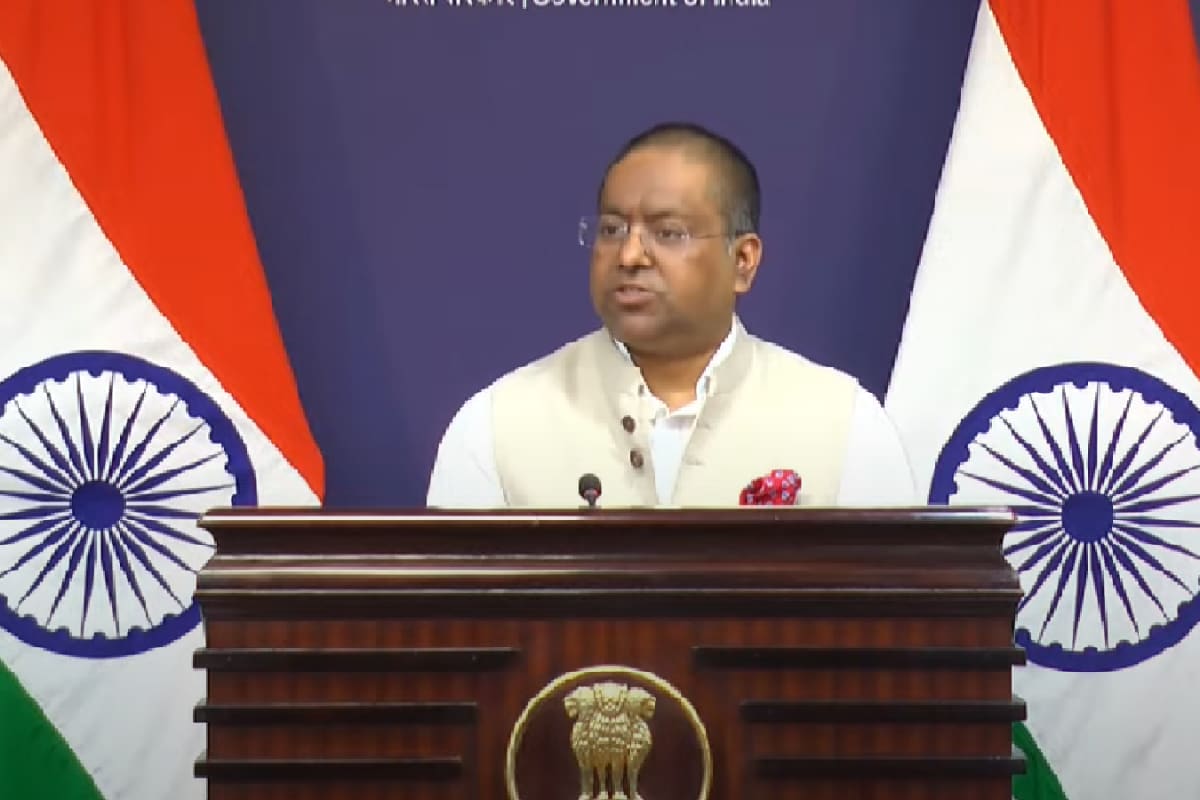

India has strongly condemned Pakistan's recent war threats, particularly those involving nuclear rhetoric, issuing a firm warning of "painful consequences" for any misadventure. This response comes in the wake of heightened tensions between the two nations, exacerbated by recent statements from Pakistani officials, including Army Chief Field Marshal Asim Munir, made during his visit to the United States.
New Delhi has characterized Pakistan's behavior as "nuclear blackmail" and expressed concerns about the safety and integrity of Pakistan's nuclear arsenal, especially given the close ties between the Pakistani military and terrorist groups. India's Ministry of External Affairs (MEA) has asserted that such "saber-rattling" is a familiar tactic employed by Pakistan and criticized the fact that these threats were voiced on the soil of a friendly third country. The MEA has also reiterated India's commitment to taking all necessary steps to safeguard its national security and has declared that it will not bow to nuclear intimidation.
The recent escalation in rhetoric follows a series of events that have further strained India-Pakistan relations. These include the April 22, 2025, Pahalgam terrorist attack in Indian-administered Kashmir, which resulted in the deaths of 26 civilians and led India to accuse Pakistan of supporting cross-border terrorism. Pakistan has denied these allegations. In response to the Pahalgam attack, India launched missile strikes in Pakistan on May 7, 2025, initiating a brief armed conflict. India codenamed this military campaign "Operation Sindoor". Pakistan retaliated, and the conflict escalated, but a ceasefire was agreed upon on May 10, 2025, following communication between the Directors General of Military Operations of both countries.
Adding to the tensions, India has suspended the Indus Waters Treaty, a 1960 agreement brokered by the World Bank that regulates the sharing of water from the Indus River and its tributaries. Pakistan has urged India to resume the normal functioning of the treaty. However, India has linked the treaty's suspension to Pakistan's cessation of support for cross-border terrorism. Pakistani leaders, including Prime Minister Shehbaz Sharif and politician Bilawal Bhutto, have warned India against any attempts to restrict Pakistan's water supply, with Sharif vowing an "unforgettable response" to such actions. Bhutto has also issued war threats, urging Pakistanis to unite against Prime Minister Narendra Modi and India's actions.
Field Marshal Asim Munir's remarks in the United States have further fueled the fire. Munir was quoted as saying that if Pakistan faces an existential threat, it would "take half the world down with us," implying the use of nuclear weapons. He also threatened to destroy any dams India builds on the Indus River, a statement that has been interpreted as a reference to planned Indian dam projects that Pakistan perceives as a threat to its water security.
India has countered these threats by asserting its right to respond to terrorism on its own terms, choosing the means and location of its strikes. Prime Minister Narendra Modi has stated that any future terror attack on Indian territory will be considered an "act of war". Some analysts believe that a disagreement between India and the United States over the May 10 ceasefire and renewed engagement between the U.S. and Pakistan have contributed to a recent setback in India-U.S. relations.
The situation remains volatile, with the potential for further escalation. The international community has expressed concern over the rising tensions and the possibility of miscalculation between the two nuclear-armed neighbors. With a history of conflict and a range of unresolved issues, the India-Pakistan relationship remains fraught with challenges, and the latest war threats have only served to exacerbate an already precarious situation.